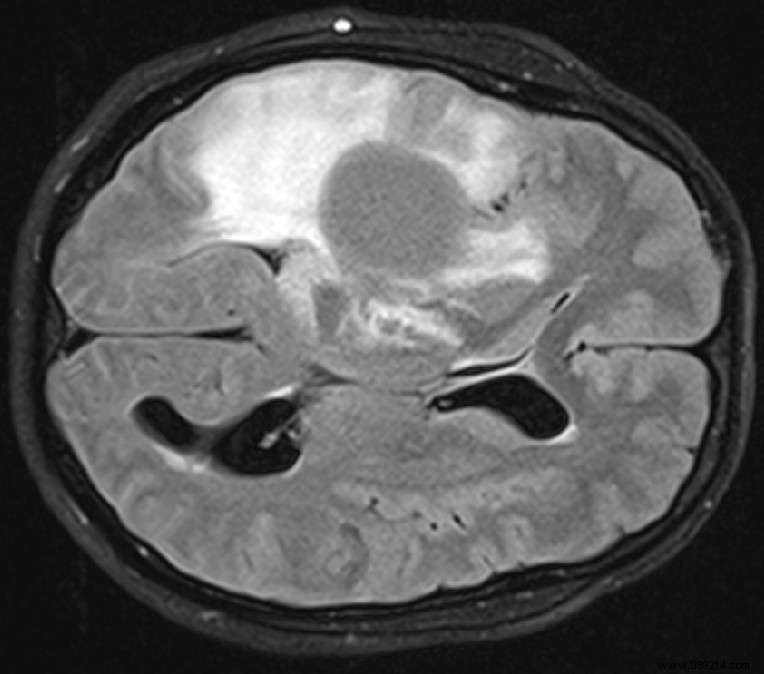A new paper published in the journal Nature reports promising results from a phase 1 trial testing a vaccine designed to help the immune system better target brain tumors.
Diffuse low-grade gliomas are tumors affecting young patients. After a slow growth, they generally become malignant in a few years, threatening the vital prognosis of the concerned.
These gliomas tend to spread throughout the brain. In fact, they are difficult to remove completely by surgery. Chemotherapy and radiotherapy often have only a limited effect. Also for several years, a team from the German Cancer Research Center has been focusing on another approach.
These tumors often share a common characteristic:more than 70% of low-grade gliomas have a single gene mutation affecting an enzyme called isocitrate dehydrogenase 1 (IDH1). This IDH1 mutation then leads to the creation of new proteins called neo-epitopes. The laboratory therefore proposes to develop a vaccine to support the immune system of patients by teaching it to target these mutated IDH1 cells.
In 2015, after years of development and animal testing, researchers finally started a first phase 1 clinical trial. This first phase, which always involves a small group of people (most often healthy volunteers), aims to answer the following questions:what is the maximum tolerated dose? How is it assimilated in the body? And what are the side effects?
In this trial, 33 patients with newly diagnosed IDH1 glioma were recruited. The recently published results of this phase 1 trial reveal that the experimental vaccine is safe (no serious side effects noted). In addition,93% of patients had an effective response to the vaccine , releasing immune T cells capable of specifically targeting the IDH1 mutation.
At the three-year follow-up, the cohort survival rate was 84% . In addition, no tumor growth was observed in 82% of patients with strong immunogenic responses to the vaccine.

Of course, this is just the start. No further definitive efficacy conclusions can yet be drawn without larger trials. However, these initial results are promising. A second phase 1 trial is already underway. This combines the experimental serum with checkpoint inhibitor immunotherapy. A larger phase 2 trial is currently being planned.